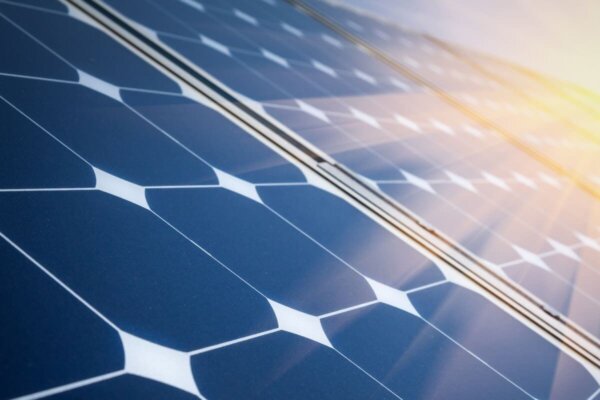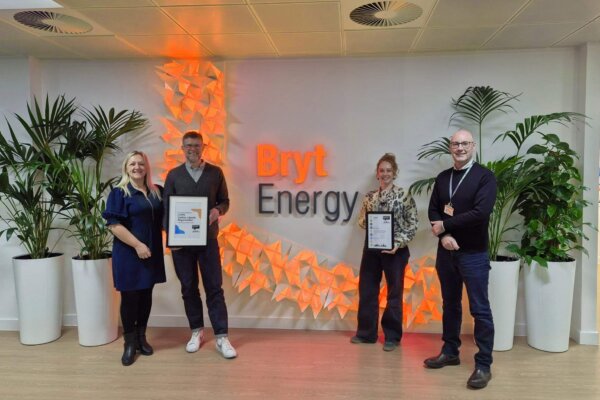As the UK continues on its net zero journey, National Grid ESO (Electricity System Operator) has reached a major milestone in its aim to decarbonise the electricity transition network with its Stability Pathfinder project. Meanwhile, the announcement of a cross-border power line, which will connect the UK and Netherlands to wind farms in the North Sea, is just one of the many good news stories for renewables this month. More information on the Energy Bills Discount Scheme (EBDS) has also recently been released – here’s what you need to know:
The latest on the Energy Bills Discount Scheme
One step closer to a net zero electricity system
World’s largest cross-border power line announced to connect wind farms to the UK
Decarbonising UK power system and heavy industries requires major low carbon energy investment
Impact of climate change on UK businesses outlined in study
Renewables in brief
News in brief
The latest on the Energy Bills Discount Scheme
More details about the Energy Bills Discount Scheme have recently been announced by the UK Government.
If your business is looking to apply for the additional ‘Energy and Trade Intensive Industries’ (ETII) discount or ‘Qualifying Heating Suppliers’ discount, the Government portal to submit your applications is now live. Businesses have until 25th July 2023 to apply for these additional discounts, and can now contact support@ebds.beis.gov.uk for any support regarding the application process.
To learn more about EBDS and how these additional discounts work, read our up-to-date blog or visit our range of FAQs.
One step closer to a net zero electricity system
National Grid ESO (Electricity System Operator) has reached a major milestone on the path towards decarbonising the transmission network, with the completion of phase one of its Stability Pathfinder project1.
The project is focused on finding cost-effective ways to address stability issues in the electricity system, including tackling the loss of “inertia”, as the UK looks to reduce its reliance on gas and coal-fired power plants. Inertia is inherent in these fossil fuel-based facilities, where kinetic energy from turbines is converted into electricity; These large turbines store enough inertia to dampen the effects of sudden fluctuations of power, making it vital for the stability of the grid. As the UK aims to move away from fossil fuel power stations with this type of ‘built-in stability’ and towards renewables where there is a lack of inertia, ESO is trialling other ways to keep the grid frequency stable.
During phase one of the Stability Pathfinder project, work was completed on 12 “synchronous compensator” units; these are rotating stabilisers, capable of providing inertia to the grid in place of fossil fuelled power stations. Over their lifetime, National Grid ESO expects the 12 units to reduce CO2 emissions by around 6 million tonnes and save energy users £128 million1.
As National Grid ESO explain, “By separating inertia generation from the process of generating electricity we can also improve the flexibility of the network, allowing more renewables to operate at any given time”.
Statkraft, our parent company and Europe’s largest generator of renewable energy, has been part of phase one, supporting National Grid ESO’s decarbonisation targets with the development of two Greener Grid Parks, in Liverpool and Moray in Scotland.
Statkraft’s Head of Greener Grid Parks, Guy Nicholson, said: “Achieving a renewable powered net-zero electricity system is now within our reach, and with five further grid stability projects under development in England, Scotland and Wales, Statkraft will continue to play a leading role in making it happen.”
You can find out more about Statkraft’s Greener Grid Parks by clicking here.
World’s largest cross-border power line announced to connect wind farms to the UK
Ministers in the UK and the Netherlands have announced a multi-purpose interconnector (MPI) that will enable 1.8GW of renewable electricity to be carried between wind farms in the North Sea and the two countries2.
The power line, called LionLink, will connect the UK and Netherlands to each other and at the same time to offshore wind farms in the North Sea. It aims to provide a reliable, affordable and secure source of power for businesses and homes, as well as help the UK meet its carbon reduction targets by increasing access to renewable energy.
The project is being developed by the National Grid and Dutch electricity network TenneT, and plans to be operational by the early 2030s.
This new project comes after separate announcements from the National Grid and the Government offshore wind champion, Tim Pick, to improve grid connections and infrastructure. In its “Great Grid Upgrade”, National Grid said it was aiming to build significant new infrastructure across England and Wales, which will move more renewable energy from “where it is generated to where it is needed”3. It called the plans “the largest overhaul of the grid in generations”, adding it would help the UK meet its net zero ambitions and reduce reliance on fossil fuels. More information about the plans can be found here.
Government offshore wind champion, Tim Pick, has also called for accelerated grid upgrades and improved connection times to achieve the full potential of the UK’s wind sector4. His independent report, “Seizing our Opportunities”, recommends several measures, including reforming the connections queue process, accelerating work to increase the grid’s physical capacity, and giving energy regulator Ofgem powers to support the UK’s net zero transition.
To read the report, click here.
Decarbonising UK power system and heavy industries requires major low carbon energy investment
A predicted 200GW of low carbon energy infrastructure must be invested in within the next 12 years to decarbonise power and end heavy industry’s reliance on costly fossil fuels, according to a new report5.
The report has been published by the Aldersgate Group – a multi-stakeholder alliance which champions a competitive and environmentally sustainable economy. It warns that current policy delivery is not moving at the pace required to meet the UK’s target of decarbonising the power system by 2035 – but does offer hope.
The report emphasises how substantial decarbonisation of heavy-industrial sectors such as cement, glass, steel and chemicals, is an essential part of both meeting the target and remaining internationally competitive.
It also makes 15 recommendations to the Government on policy priorities for both power system decarbonisation and industrial electrification, including:
- Making it quicker and easier to connect low carbon energy projects to the grid, including upgrades to industrial networks.
- Developing the regulatory framework to enhance investment in network capacity.
- Collaborating across heavy industry, with Government and Ofgem part of the process, to efficiently construct necessary grid infrastructure.
- Simplifying the planning process for low-carbon projects and scaling up workforce to manage the increased demand.
- Extending and improving the Contracts for Difference scheme to support greater diversity in renewable energy.
The report says the actions would give the Government the opportunity to create a long-term future for more sustainable heavy industry sectors, as well as accelerate the transition to a low carbon economy.
You can read the Aldersgate Group report here.
Impact of climate change on UK businesses outlined in study
In a study of more than 1,500 UK business decision makers, half say their companies have already been impacted by the effects of climate change, and nearly three quarters are concerned about its impact over the next decade.
The research6 shows four in 10 respondents had spent money on taking steps towards mitigating the impact of climate change, and encouragingly, more than half planned to over the next two years.
The most common actions of businesses planning to protect themselves against climate change include:
- Committing to reduce carbon emissions
- Reviewing their insurance policies
- Setting a net zero target
- Investing in low-carbon technologies
The study also showed the approaches businesses are already taking to reduce their wider impact, such as reducing paper use, using renewable energy, and switching to automatic lighting and LED bulbs.
Read more about the report and reactions from businesses, here.
Renewables in brief
The UK recorded a 23% increase in wind generation capacity last year, according to the latest Global Electricity Review by energy think-tank Ember7. This led to a year-on-year rise of 15TWh, described in the report as a “significant increase”. Wind power now accounts for a quarter of generation in the UK – an encouraging step towards the UK’s net zero target.
It’s also been a good-news month for Scottish renewables, as Scottish Water has switched on nearly 8,500 ground-mounted solar panels8. The £5 million installation at its East Dunbartonshire site will provide 19% of the site’s electricity needs, generating 4.45 GWh of energy every year. Scottish Water says the investment will save around 1,100 tonnes of CO2 equivalent annually, a positive movement towards Scotland’s net zero target for 2045, which is five years before the rest of the UK.
Meanwhile, another project that will go towards this target is Scotland’s first floating solar array, set to be installed later this year9 after receiving a £6.4 million grant from the Scottish National Investment Bank. Our parent company, Statkraft, is also developing floating solar panels at the Banja hydropower plant in Albania10. In addition to generating renewable energy, this research and development project also serves to help understand the potential benefits of this technology.
News in brief
- Businesses are being urged to report their plastic production and use for the first time through CDP’s (Carbon Disclosure Project’s) global environmental disclosure system11. CDP, which assesses companies on a number of environmental factors, is encouraging companies in packaging, fashion and food industries to be the first to use the function. It requires companies to categorise their plastics use into packaging, polymers, and durable plastics categories. It’s hoped the move will encourage businesses to better understand how they contribute to plastic pollution. For more information, including tools to support businesses with plastic disclosure, click here.
- Energy regulator Ofgem could be legally required to assist in delivering net zero, after members of the House of Lords passed an amendment during its third reading of the Energy Security Bill12. The amendment was put forward after energy trade associations expressed concerns over the extent of powers Ofgem has to deliver net zero. It will be considered by MPs in the Commons this month.
- As leaders prepare to meet at the G7 Summit in Japan this month, the We Mean Business Coalition of business leaders has written to G7 ministers calling on them to deliver commitments to phase out coal fired power by 2030 and decarbonised power grids by 203513. The letter says businesses are ready to deploy solutions needed for the energy transition, but need supportive policies, investments and timelines to do so at the speed required. The coalition also called for G7 leaders to rapidly scale up renewable generation and make sure that by 2035 all new vehicle sales are zero emissions. They also want to see that the 2016 G7 commitment to eliminate fossil fuel subsidies by 2025 is being delivered.
TALK TO OUR TEAM
If you have any questions on how any of the updates might affect your business, our team of experts is on hand to answer them. You can get in touch with us on 0330 053 8620 or at heretohelp@brytenergy.co.uk.
Sources
- https://www.nationalgrideso.com/news/first-phase-stability-pathfinders-delivered
- https://www.gov.uk/government/news/worlds-largest-of-its-kind-power-line-to-deliver-clean-power-to-18m-uk-homes-and-boost-energy-security
- https://www.nationalgrid.com/national-grid-launches-largest-overhaul-grid-generations
- https://www.gov.uk/government/publications/accelerating-deployment-of-offshore-wind-farms-uk-offshore-wind-champion-recommendations
- https://www.aldersgategroup.org.uk/publications/post/a-zero-carbon-power-grid-and-the-electrification-of-heavy-industry-how-to-deliver-on-a-twin-challenge/?origin=/publication/type/reports-and-briefings/
- https://www.ajg.com/uk/news-and-insights/2023/april/half-of-uk-businesses-already-impacted-by-climate-change/
- https://ember-climate.org/insights/research/global-electricity-review-2023/
- https://www.scottishwater.co.uk/About-Us/News-and-Views/2023/04/260423-Solar-Giant-Switched-on-in-East-Dunbartonshire
- https://www.gov.scot/news/floating-solar-panels-ready-in-first-for-scotland/
- https://www.statkraft.com/newsroom/news-and-stories/2023/statkraft-completes-construction-of-first-rd-floating-solar-plant-in-albania/
- https://www.cdp.net/en/articles/media/cdps-environmental-disclosure-system-opens-for-reporting-on-plastics-for-first-time-at-request-of-investors-with-us130-trillion-in-assets
- https://www.current-news.co.uk/energy-bill-amendment-grants-ofgem-net-zero-mandate/
- https://www.wemeanbusinesscoalition.org/blog/we-mean-business-coalition-letter-to-g7-ministers/


